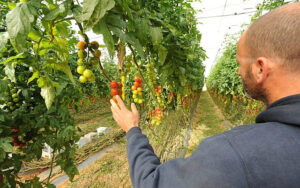By now, it has become clear that the ongoing Swords of Iron war has inflicted a severe blow to Israel’s agricultural sector and food security. A recently released supplement to Leket Israel’s Annual Food Waste and Rescue Report notes that food waste surged dramatically in the war’s first six months, costing the Israeli economy approximately NIS 1 billion ($275 million). While the news focuses very heavily on describing the toll of war measured in lives lost and homes destroyed, the devastation also extends to one of our most fundamental needs: food.
Over the last 11 months, we’ve seen vegetable prices jump by 18 percent and fruit prices by 12%, due to agricultural shortages. It’s hard to understate the impact of these rising costs — especially for those already struggling with food insecurity. The numbers are staggering; over 150,000 tons of produce, valued at roughly NIS 670 million ($185 million), has gone to waste since the war began. What used to be a strong agricultural sector is now crippled, and the ripple effects are being felt at grocery stores and on family dinner tables across the country. They are having an even deeper effect on those who were struggling to put food on the table in the first place.
With 75% of Israel’s produce grown in the Gaza envelope or the northern border, the losses should come as no surprise. About 40% of the agricultural workforce — Palestinian and foreign workers included — has been lost, causing more waste as fewer hands are available to harvest the crops. In fact, the war has pushed the rate of food waste in agriculture from 9% to 22%.

